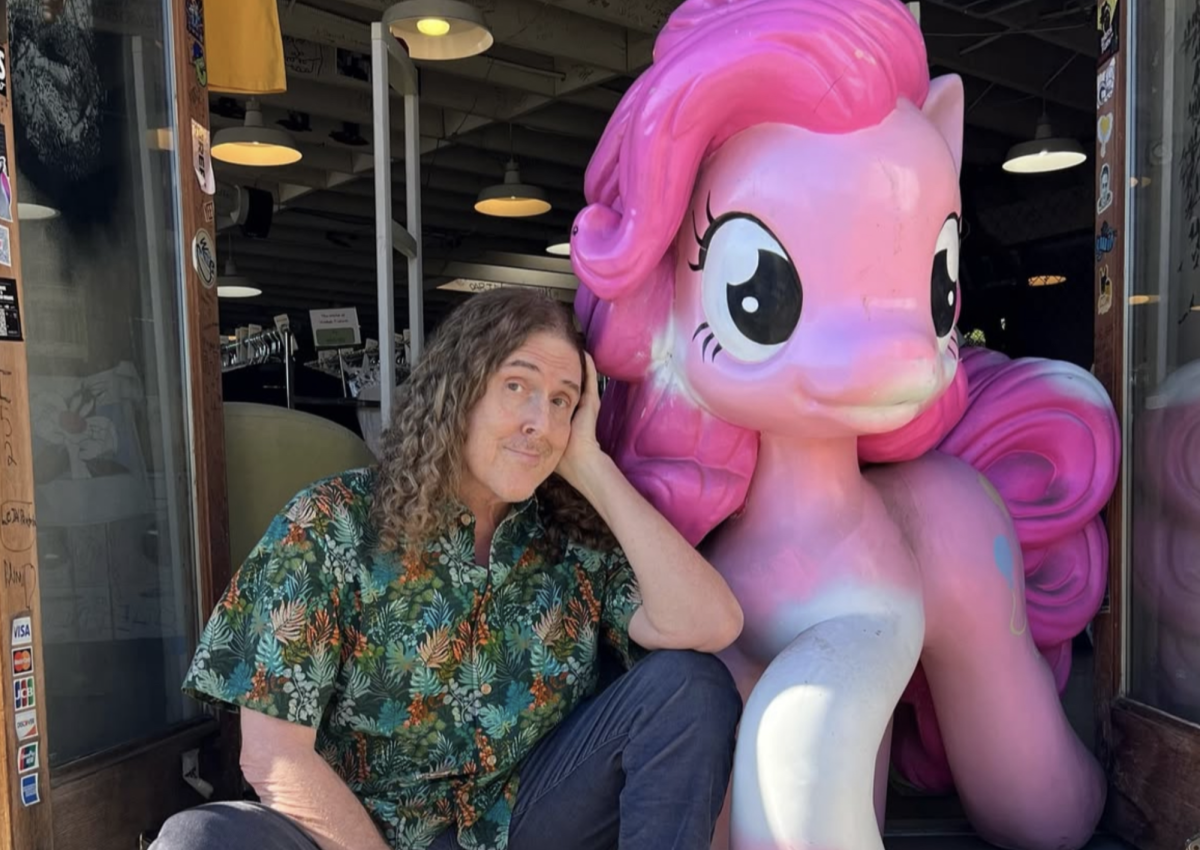
Adrianne Lenker, lead singer of indie folk band Big Thief — which also includes members Buck Meek and James Krivchenia — finds herself “At the bridge of two infinities / What is forming, what is fading,” in the group’s newest album, “Double Infinity.”
This duality is central to the album — lyrically, “Double Infinity” bridges the tangible and the spiritual, the past and the future, while exploring Lenker’s reconciliation with aging and her reflections on life and past loves. The nine-track album also serves as the group’s first foray into a more upbeat folk-rock sound, featuring various collaborations with artists contributing both vocally and instrumentally. With echoes of their classic, homespun folk sound intertwined with their venture into rock, “Double Infinity” musically embodies the dichotomies it explores.
In “Incomprehensible,” Lenker grapples with her upcoming birthday, simultaneously lamenting the meaninglessness of once-beloved treasures and embracing her femininity and age as an act of rebellion against society’s conventions. “How can beauty that is living be anything but true?” she asks, comparing her predecessors’ beauty to Earth’s own natural splendor.
The seventh track, “Grandmother,” also deals with the difficulties of aging and accepting the impermanence of youth. “Grandmother” is one of my favorite songs off the album, largely due to the collaboration with artist Laraaji; his wordless vocalization and the resonating twang of the zither complement Lenker’s breathy voice, infusing the song with an ethereal beauty. The repetition of “Gonna turn it all into rock and roll” encapsulates the heart of the album; music allows us to capture that which words alone cannot.
The second track, “Words,” also features Laraaji’s vocals and similarly explores how words just aren’t enough to represent life’s essence. As one of the songs most removed from the stylistic rawness of Big Thief’s previous works, “Words” truly embraces the group’s new electronic sound. This works in their favor: The throbbing realness of the lyrics is only amplified by the droning background noises and the warped guitar.
Though I’ve found Big Thief to be historically stalwart in the quality of their lyrics, I was surprisingly disappointed with a couple of this album’s songs. While instrumentally sweet, the fourth track, “All Night All Day,” is a rather crude ode to oral sex. Despite the lack of subtlety in some of the lyrics, such as the opening line “All night, all day / I could go down on you / Hear you sing your pleasure,” the song fits nicely into the album’s overarching exploration of life and love.
The album’s eighth track, “Happy with You,” revisits this parallel. While the incessant repetition throughout the song feels inane at first, when examined through the lens of love’s dual natures, it becomes rather heartbreaking. It’s as though Lenker is trying desperately to convince herself that she is truly happy with her object of affection. Despite the song’s thematic importance, I am not a fan of the production — I find myself actively disliking it during each listen, an impressive feat for Big Thief, which hardly produces skip-worthy songs.
“No Fear,” the sixth song, similarly consists entirely of a prayerlike repetition of a single verse. With its darker psychedelic instrumentals, “No Fear” establishes itself as the eerie pinnacle of Lenker’s attempt to grapple with reality and the passage of time throughout the album. In its final seconds, the song devolves into warped electronic instrumentals, abruptly cutting off after she says “There is no time.” Where the simplicity of the lyrics in “Happy with You” detracted from my listening experience, this song’s almost elementary words and rhythm felt auditorily satisfying.
For me, the third and fifth tracks — “Los Angeles” and “Double Infinity,” respectively — are two sides of the same coin. Both songs look back on a relationship, the former in parallel to all that is manmade and the latter to all that is natural. In “Los Angeles,” Lenker seems caught up in the past, continuing to dedicate herself to a lost lover: “I’d follow you forever / Even without looking.” She echoes this in “Double Infinity,” where she admits to “Longing to go back again / To be someone I’ve never been.” Ultimately, she finds herself at the precipice of the future, ready to absorb the first infinity, all that is fading, and to dive into the second, all that is forming.
The ninth and final track, “How Could I Have Known,” shows how Lenker has reconciled the past and the future: “They say time’s the fourth dimension / They say everything lives and dies / But our love will live forever / Though today we said goodbye.” While earlier in the album she could not accept the end of her relationship, she now embraces both its impermanence and immortalization through her music.
While “Double Infinity” marks a departure from Big Thief’s traditional folk style, the group successfully continues their spiritual and emotional inquiry into the human experience, straddling the vastness of the open future and the celebration of memory and loves past.








